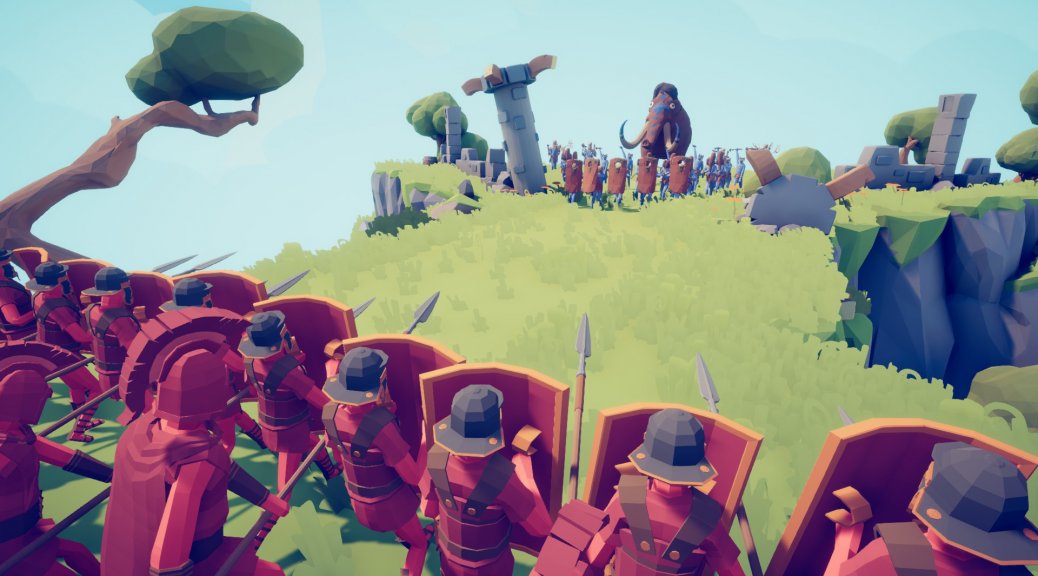
- #Totally accurate battle simulator game not for download install
- #Totally accurate battle simulator game not for download full
A collective of studios pulled Unity and IronSource ads from all their titles as a form of protest, and called upon others to do the same. Obviously, Unity's new fees did not go over well. Remember when Facebook sent a memo to employees about "friendly fraud" (kids using their parents' credit cards to buy stuff) and why they shouldn't try to stop it? Good times.
#Totally accurate battle simulator game not for download install
The company also said it has anti-fraud technology to detect pirated copies of the game being installed so developers won't be charged for those, but we question a) whether such technology exists (If I legally install that DRM-free copy of Dear Esther on my laptop and then on my PC, how exactly does that work differently from me installing it on my laptop and then pirating it by giving a copy to a friend to install on their PC?) and b) how eager Unity will be to invest in technology that will reduce the amount of money it is owed. QUOTE | "We leverage our own proprietary data model, so you can appreciate that we won't go into a lot of detail, but we believe it gives an accurate determination of the number of times the Runtime is distributed for a given project." – Unity's representative tells us the company definitely has a very good, very accurate process for determining how much money you need to pay it, but you're not allowed to know what it is.Īlso, even if you did know how many times the Runtime was distributed, that's not the same as how many times it was installed, which is the thing you're actually charging people for. Just imagining Riccitiello shaking his fist at the heavens, screaming "Esssssstherrrrr!" How does Unity tell if I install the game on a hundred computers or none? Or the same computer 100 times? That's great, but how will Unity even track this? If I buy a copy of Dear Esther Landmark Edition (made with Unity) on GOG.com, I get a DRM-free copy that does not require any online connection to play. QUOTE | "As for Game Pass and other subscription services, Whitten said that developers… would not be on the hook, as the fees are charged to distributors, which in the Game Pass example would be Microsoft." – Axios adding key context for Unity's policy Tuesday evening. QUOTE | "Subscription services, like Game Pass, do count as an install." – Unity's spokesperson responds to our inquiry about how streaming games would be counted for the Runtime Fee.īummer, but at least we got an answer I suppose, and now we know developers will be on the hook for. How about games included in streaming services? They aren't really installed on an end user's device, so they shouldn't count, right? If it's not, like a single level that can't upgrade, then no." – A Unity representative in the company's official forums in a thread edited Tuesday night.

#Totally accurate battle simulator game not for download full
If you can get from the demo to a full game then yes. QUOTE | "If it's early access, Beta, or a demo of the full game then yes. Oh, phew! That could have been bad, but thankfully Unity was quick to dispel. QUOTE | "No, demos, trials, game bundles and giveaways - like the Humble Bundle - do not count as installs." – A Unity spokesperson, in an email response to use on Tuesday afternoon. We asked Unity if that would include demos, since those are distinct projects that get installed on end user devices and certainly seem to count. QUOTE | "An install is defined as the installation and initialization of a project on an end user's device." – Unity's initial FAQ on the new fee. But there are problems because these charges are based on game installs, not sales, and Unity has not done a great job communicating what's going on here. It doesn't sound like a lot, and if a developer just had to pay the fee each time they sold a $60 game, it wouldn't be. STAT | $0.01 – The fee per install for large developers (Unity Enterprise clients) whose games brought in $1 million in the past year and have lifetime sales of one million or more. STAT | $0.20 – The fee per install for small developers (Unity Personal subscribers) whose games brought in $200,000 in the past year and have 200,000 lifetime installs to date.

Tuesday morning, Unity decided to introduce its new Runtime Fee, which Unity developers of a certain size will have to pay every time their game is installed on a new device after January 1, 2024. I'm actually writing this lead on Tuesday afternoon, but feeling pretty confident that whatever happens from here on out, this much will be true. This Week in Business is our weekly recap column, a collection of stats and quotes from recent stories presented with a dash of opinion (sometimes more than a dash) and intended to shed light on various trends.


 0 kommentar(er)
0 kommentar(er)
